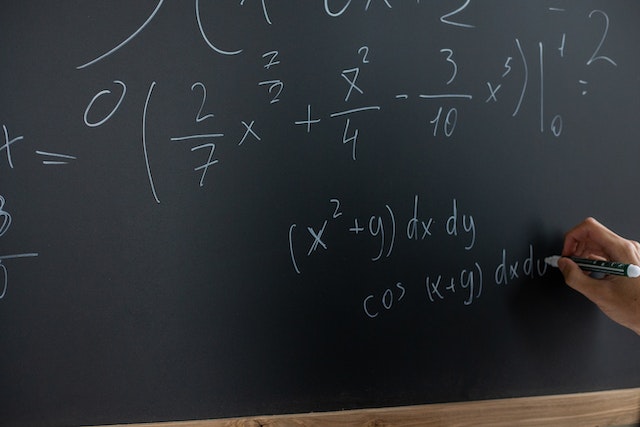If you ask any college or high school students about their favorite subject, I guarantee most will not choose math. Many students find this subject difficult because it builds on previous concepts. In simple terms, if you don't understand Algebra 1, it won't be easy to understand Algebra 2.
Math concepts are very important in our daily life. We use them to complete daily activities from a distance covered when jogging in the morning, shopping, to solving complex mathematical problems. Everything around us applies math concepts, so we must try to learn math.
In this article, we will lay bare some of the tested and approved methods to help you overcome the challenges in your math homework. We will explore strategies to enhance your understanding, boost your confidence, and improve your performance.
Techniques for mastering your homework
Organize and prioritize math homework assignments
You must be organized and dedicated to doing your homework assignments as a student. Sometimes balancing math homework with other academic and extracurricular commitments can be challenging, but you will find a balance with proper planning and time management. You can organize your work through;
- Using a digital calendar to record all your math homework assignments, with their due dates and details provided by your teacher, to enable you to visualize your upcoming tasks.
- Divide the assignment into parts for in-depth analysis to enable you to allocate time and effort where needed.
- Create a checklist for each assignment, and outline the steps to solve.
- Start with assignments due sooner or requiring more time and effort, and avoid a last-minute rush.
- Include math homework in your study schedule, including the time required for each subject for accountability.
Regular Practice
Practice makes perfect, and true to this statement, consistent practice is another great way to improve your math skills. Always go back to the contents you have learnt as you explore new concepts for a comprehensive understanding of math. Ways practice contributes to your math skills:
- Practice allows you to solidify your understanding of math concepts by repeatedly applying these concepts in different problem-solving scenarios. This allows you to grasp principles, properties, and relations better.
- The more you practice, the more familiar and comfortable you become with various mathematical operations, calculations, and problem-solving techniques which will improve your speed and accuracy in solving math problems.
- You refine your strategies by identifying relevant information, breaking down problems into manageable steps, and applying appropriate mathematical techniques.
- Repeatedly practicing math concepts helps reinforce them in your memory and long-term learning. As you work on similar problems, you internalize the steps and procedures, making them easier to recall and apply in future assignments.
- Practice exposes areas where you struggle, enabling you to focus on improving your understanding of particular concepts. Targeted practice and repetition in these areas help address and overcome difficulties, leading to overall improvement.
Use Technology
Make good use of online educational platforms to enhance your math homework efficiency. These apps are customized for students struggling with concepts with experienced tutors to make math enjoyable. They have video tutorials and simplified versions of various formulas and concepts. You can ask questions and receive instant feedback, but be careful, as you can easily be distracted when an interesting alert can pop up on the screen. Some of the technologies and sites that will be beneficial for your learning are;
- Khan Academy and Math Playground; have interactive exercises, quizzes, and practice problems with a wide range of math topics and adaptive practice, tailored to your level of understanding.
- Engage with virtual math forums like math stack exchange and Reddit's math community to interact with other students and math enthusiasts and have the opportunities to ask questions, discuss concepts, and learn from others.
- Enroll in online math courses like Tutor.com and Chegg to receive personalized guidance from qualified instructors, who will provide additional support and resources for your math homework practice.
Use math tricks
Learning math in your way and pace can be enjoyable. To be a master in math, you must find your way of understanding math formulas and concepts to make the learning process easier and help you understand the subject better. Some math tricks you can employ are;
- Use mnemonic devices like the SOHCAHTOA phrase to remember the formula for sine, cosine and tangent of an angle.
- The answer will end with the same digit if you multiply 6 by an even number. The number in the ten's place will be half that in the one's place. Example: 6 x 4 = 24.
- Everyone knows you can count on your fingers. Did you realize you can use them for multiplication? A simple way to do the "9" multiplication table is to place both hands in front of you with fingers and thumbs extended. To multiply 9 by a number, fold down that number finger, counting from the left. Examples: To multiply 9 by 5, fold down the fifth finger from the left. Count fingers on either side of the "fold" to get the answer. In this case, the answer is 45.
- A simple way to do the "9" multiplication table is to place both hands in front of you with fingers and thumbs extended. To multiply 9 by a number, fold down that number finger, counting from the left. Examples: To multiply 9 by 5, fold down the fifth finger from the left. Count fingers on either side of the "fold" to get the answer. In this case, the answer is 45. To multiply 9 times 6, fold down the sixth finger, answering 54
- Divisible by 5 if the last digit is 0 or 5 (9905).
- Divisible by 6 if it passes the rules for both 2 and 3 (408).
- Divisible by 9 if the sum of the digits is divisible by 9 (6390 since 6 + 3 + 9 + 0 = 18, which is divisible by 9).
- Divisible by 10 if the number ends in a 0 (8910).
- Divisible by 12 if the rules for divisibility by 3 and 4 apply.
Good study environment
Find a quiet and comfortable study place with minimum distractions. You will need maximum concentration to grasp math concepts. You can place a DON'T DISTURB sign on your door to let others know you need uninterrupted time to focus on your math assignment. Experiment with different setups and arrangements until you find what works best. Here are some tips to help you establish an environment that promotes focus, productivity, and efficient learning:
- Minimize distractions that can divert your attention away from your math homework. Switch off your phone or place it on silent mode, close unnecessary tabs on your computer, and keep non-essential items out of sight.
- Ensure the area is well-lit to prevent eye strain and maintain focus.
- Keep your math textbooks, notebooks, calculators, and other materials organized and easily accessible.
- Sit at a desk that provides a comfortable and ergonomic setup. Use a chair with proper back support and a desk at an appropriate height to maintain good posture, reducing physical discomfort and fatigue.
- Listened to classical music with no lyrics when studying to improve your focus.
Use practical examples
Using examples is another way of learning math, allowing you to grasp the concepts easily. Apply math problems to your daily activities to understand how math works. For example
- Calculating the time taken to walk from your home to the office
- The distance you covered and time is taken when jogging in the morning
- The amount spent on each grocery, including their total
- Chance of winning a lottery ticket
- The probability of your workmate wearing a red dress on Monday
- If you're learning about percentages, explore how they are used in calculating discounts during shopping or determining the probability of events in sports.
While it may seem difficult, these are great ways to practice math and employ real-world knowledge to work out a solution.
Take notes when studying
Effective note-taking and reviewing math concepts is another great way to help you help comprehend and retain the material covered in class. Refine your note-taking techniques and tailor them to your learning style. Tips to help you take effective notes and review math concepts for homework:
- Summarize complex concepts and explanations in your own words to help you internalize and understand the material more effectively.
- Keep your math notes organized using headings, subheadings, bullet points, and numbering to categorize information to reflect the logical flow of concepts to make it easier to review and locate information.
- Develop a set of abbreviations and symbols like "+," "-", "×," "÷," and "≈" to represent operations and relationships. Create abbreviations for frequently used terms to save time while taking notes, and ensure your abbreviations are clear and easily understood.
- Record how the instructor has explained procedures.
- Record what examples the instructor has demonstrated.
- Develop good organizational skills.
- Record important class information such as homework assignments and test dates.
Self-reflect
Self-reflection and error analysis are not about dwelling on mistakes or feeling discouraged but rather opportunities for growth, learning, and continuous improvement. Reflection allows you to identify and understand your mistakes, refine your strategies, and improve your math skills.
- Examine the errors that led to incorrect answers. This will help you identify patterns and trends in specific types of problems and avoid similar mistakes in the future.
- Check the steps and reasoning behind your approach, and identify where you went wrong. This self-reflection helps you develop better techniques.
- The mistakes and improvements made enable you to track your growth and development, reinforcing your motivation and confidence.
Seek Clarification Early
If you encounter difficulties understanding a concept or problem, don't wait until the last minute to seek help. Reach out to your teacher, classmates, or online forums for clarification. Engage in discussions, and learn from different perspectives.
- Reflect on the specific concepts that are causing you difficulty. Identify the specific question you're struggling with to articulate your concerns more clearly when seeking assistance.
- When asking a question, be as specific and clear as possible. Clearly state the problem or concept you're having trouble with and provide any relevant context or information.
- Seek help from different resources, such as your teacher, classmates, online forums, or tutoring services. Each source may offer different perspectives or approaches to solving the problem, giving you a more comprehensive understanding.
- When seeking help in a group setting or online forum, actively participate in discussions. Engage with others, ask follow-up questions, and seek clarification if needed.
- Schedule a meeting to discuss your questions and difficulties. This one-on-one interaction allows personalized guidance and an opportunity to address your challenges.
Build confidence
To succeed in math, you must build confidence in problem-solving skills. Be patient with yourself and celebrate progress along the way.
- Recognize and acknowledge your feelings of anxiety towards math. Understanding you are not alone will help normalize your emotions.
- Challenge negative beliefs that perpetuate your math anxiety. Replace thoughts like "I'm just not good at math" with positive and realistic statements such as "I can improve my math skills with practice and effort."
- Start with building a foundation in smaller, manageable math problems and gradually progress to more complex ones.
- Employ relaxation techniques, such as deep breathing exercises, mindfulness, or progressive muscle relaxation, to manage anxiety during math tasks to calm your mind and alleviate stress.
- Visualize yourself successfully solving math problems and feeling confident in your abilities to rewire your brain and associate positive outcomes with math tasks, reducing anxiety and enhancing self-belief.
Steps in solving math problems
With math, there is no guesswork. You must outline the steps to arrive at the answer to help you visualize the procedure and errors you might make. The systematic method involves;
- Reading the problem statement and identifying key information, variables, and instructions.
- Identify the type of problem you're dealing with and apply the appropriate solution to your problem. Is the problem a geometry, an algebraic equation or a word problem?
- Design a plan using different approaches such as equations, diagrams or formulas for solving the question based on the problem type.
- Carry out your plan and keep track of each operation. Perform calculations accurately, and pay attention to units of measurement.
- Show your work neatly and clearly, making it easier to review and verify your solution later.
- After obtaining an answer, assess its reasonableness. Does it make sense, given the context of the problem? Check whether your answer aligns with any given conditions or constraints. If the answer seems too large or too small, or if it contradicts the problem statement, review your solution for potential errors.
- Double-check your calculations, ensure you have answered the question correctly, and consider alternative solutions. Look for opportunities to simplify your solution.
Sometimes as a parent trying to help your child with homework or a student looking for ways to improve their performance in math, you can't find the best way to solve math problems. I am here for you; all it takes is lots of practice, dedication, and effort to make the learning process easier and more fun. You can use various helpful resources, tutoring services, and study tips to improve your math skills. For more information, refer to our guide to learn how to achieve great results







